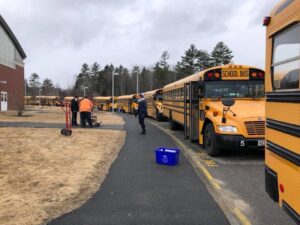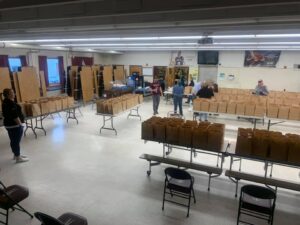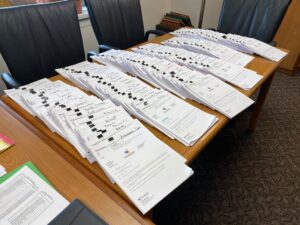Project Overview
The closing of school buildings during the COVID-19 global pandemic between March 2020 and June 2020 underscored the critical role that U.S. schools play in providing support for the basic needs of economically vulnerable families. The transition of schools to “crisis schooling” raised urgent questions about how districts can initiate or continue these supports for students in a context of social distancing, fiscal uncertainty, unprecedented unemployment, and an evolving understanding of the epidemiological risks associated with the virus. Superintendents and principals have had to weigh the risks of providing these services and make rapid, iterative decisions with imperfect information and limited resources.
It is unclear what factors have been most important in shaping these leaders’ responses to meeting students’ basic needs, making it difficult for federal and state agencies to provide effectively differentiated supports for district needs. Media outlets reported on districts creating drive-in wireless hotspots, repurposing school buses to deliver meals to geographically dispersed families, and reassigning paraeducators to food distribution. During the spring of 2020, there was limited data available on the extent to which different strategies were being employed or how these practices were being adapted across diverse district contexts. While many federal and state agencies (e.g. USDA, 2020) relaxed or changed certain policies to enable flexibility in local responses, many states left it to districts to determine how to provide supports for families during stay at home orders.
The Study
This study, led by Dr. Catharine Biddle (Associate Professor of Educational Leadership) and Dr. Maria Frankland (Lecturer of Educational Leadership), is a multi-phase examination of district leadership decisions and adaptations related to basic needs provision in two states with differing levels of epidemiological risk (Maine and Pennsylvania; n=679). Phase 1 of the project collected and analyzed district communication released to families from district websites and social media feeds. Phase 2 focused on interviewing superintendents across rural, suburban and urban contexts to understand how and why practices have been adopted and iteratively refined during this time. We have released several reports over the course of the 2020-2021 school year outlining our evolving understanding of how school leaders shaped crisis schooling in response to COVID-19. We will continue to publish relevant findings from the project over the course of the 2021-22 school year.
Funding
This project is (in part) funded by a Spencer Foundation COVID-19 Rapid Response Grant (#10024346). The views expressed in this and subsequent reports are those of the authors and do not necessarily reflect the views of the Spencer Foundation.



